
13 minute read
NLGA 50th ANNIVERSARY
LIEUTENANT GOVERNORS and the Roles They Play
Lieutenant governors—those who are first in line to succession to governors—have varied roles across the 50 states and five U.S. territories. Many preside over state senates, while most pursue legislative initiatives. Many testify on issues either in their state capital and/or Washington, D.C. Some serve in governors’ cabinets, while others maintain varied portfolios of duties. Each state and the individual officeholder has the opportunity to utilize the office to most effectively meet the state’s needs. The National Lieutenant Governors Association, organized in 1962, and an affiliate of CSG, serves these state officials who are first in line of succession. This official holds the title of lieutenant governor in 45 states and four U.S. territories, while the secretary of state fills this role in three states and one territory. In two states—West Virginia and Tennessee—the senate president is first in line of succession. Lieutenant governors are the only officials with specific duties and powers in two branches of state government—the executive and legislative branches. In recognition of the nation’s lieutenant governors and the Golden Anniversary of NLGA, Nebraska Lt. Gov. Rick Sheehy, the 2012 NLGA chair, and Rhode Island Lt. Gov. Elizabeth Roberts discuss the roles they play in their respective states.
NLGA 50TH ANNIVERSARY As part of its 50th anniversary celebration, the NLGA has partnered with the Kenton County, Ky., Public Library—with support from The Council of State Governments—to make available the first national collection of documents on the work of the nation’s lieutenant governors. To learn more about NLGA, visit www.nlga.us.
My statutory duties as lieutenant governor of Rhode Island include serving as the chair of the Long Term Care Coordinating Council, the Small Business Advocacy Council and the Emergency Management Advisory Council. Among my goals are to make health care reform a priority to benefit all Rhode Islanders; to help create a state in which new entrepreneurs easily can start new ventures, while Main Street businesses have access to opportunities for growth and prosperity; and to ensure that Rhode Island is well prepared for any emergency or natural event that might bring disaster our way. Other responsibilities of this office tend to be projectfocused and often accomplish important work. One example of this is the Healthy RI Task Force that I created in spring 2010 to determine how best to implement national health care reform in Rhode Island, especially the health benefits exchange that is required to launch by Jan. 1, 2014. Projects such as the task force are not designated by the role itself, but are up to the elected official to define during his or her time in office. In January 2011, Gov. Lincoln Chafee transformed the task force into the Rhode Island Healthcare Reform Commission. I am now serving as chair to oversee the coordination of efforts of several state agencies and more than 150 dedicated professionals across the health
AN EVOLVING POSITION | Nebraska Lt. Gov. Rick Sheehy
The practice of states having a clear line in the gubernatorial succession plan has been in place for more than 200 years, and the position of lieutenant governor has played a significant role and continues to evolve in many states. I have had the opportunity to serve as lieutenant governor in Nebraska since being appointed in January 2005. Managing the business of the state has become very complex, and it has been recognized that the lieutenant governor’s office can be a strong partner to help manage the state’s issues. The role of the lieutenant governor in many states has evolved into a very integral position. In states, many lieutenant governors have the constitutional responsibilities as the presiding officer of the legislative body and are also the first in the line of succession to the office of governor if the office is vacated. That is where the commonalities end.
The areas that are my primary focus in Nebraska are serving as the director of homeland security, working with our Department of Economic Development on business development and recruitment and the Nebraska Information Technology Commission.
My responsibilities as director of homeland security include the coordination of efforts by local, state and federal agencies that are involved in public safety and public health. Being an
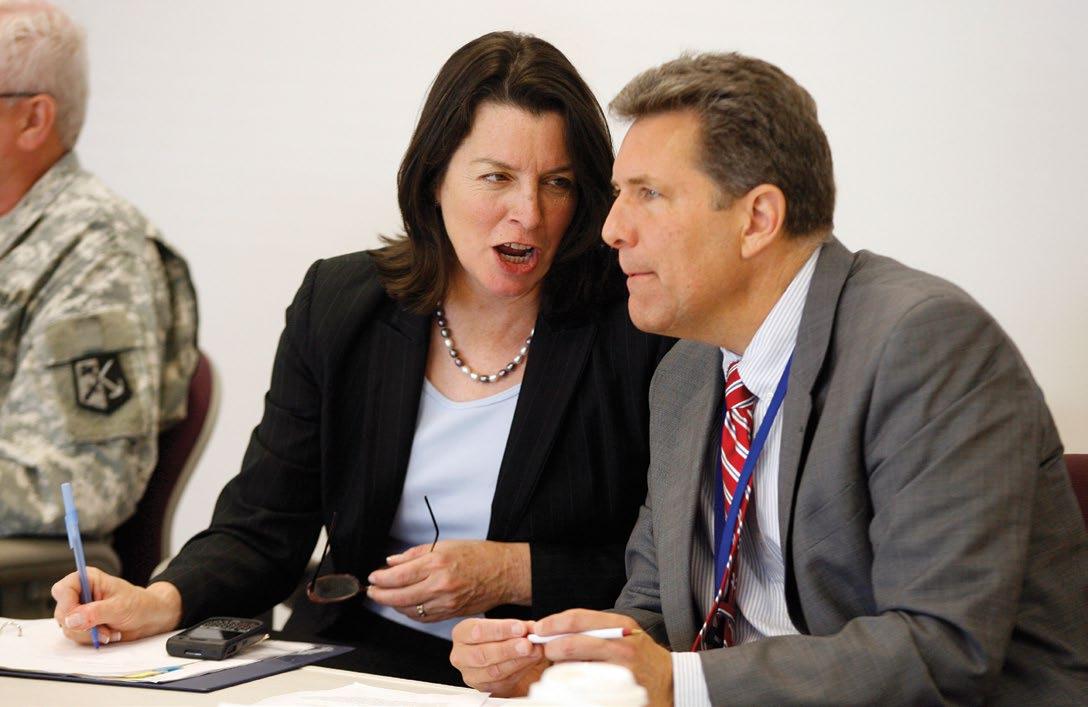
WARWICK, R.I.—Rhode Island Lt. Gov. Elizabeth Roberts, left, talked with Edward Johnson, deputy director of the state’s Emergency Management Agency, during a meeting of the Emergency Management Advisory Council. © AP Photo/Stew Milne
care industry, including consumer advocates, business leaders, physicians, nurses and other health care providers, labor leaders, insurers, legislators and policymakers. Over the past year, Rhode Island has been recognized nationally for how quickly we’ve been able to make significant progress in our implementation efforts. The key to our success has been how closely the Healthcare Reform Commission has worked with the community outside of government, especially those in the health care field, while gaining the cooperation and collaboration of various departments inside state government. This robust participation has been beneficial in propelling us forward, and our progress is testimony to just how productive government can be when we all work together toward a common goal.
emergency responder as a paramedic for more than 20 years has proved to be very helpful. As a chief executive in the state, I have a responsibility to create an environment for businesses to be successful and grow. Working with the Nebraska Department of Economic Development, I have the opportunity to work with education and our business sector on the necessary strategies for success. We are competing in a global environment and there is a need for significant cooperation. Nebraska is geographically a very large state. We have embraced the utilization of technology for interaction with our citizenry to do business with the state. The information technology system also establishes policies and protocols for how the state government and university system utilize technology. Some of the successful projects I have worked on include telehealth network, health information technology, electronic health records, distance education, a statewide interoperable communications system for our emergency responders, and the adoption of several hundred ways citizens can get access to information or have the capabilities to do business with the state.
As with any job, there is the old employment saying, “and other duties as assigned.” The office of lieutenant governor in the state of Nebraska has become more efficient and effective over the years and now is viewed as an integral piece in the delivery of service to our citizens.
CONGRATULATIONS
National Lieutenant Governors Association
on its 50th anniversary of serving the states.

Since 1962, NLGA has provided a place for the exchange of views and experiences on topics of interest to the nation’s lieutenant governors and has fostered interstate cooperation.

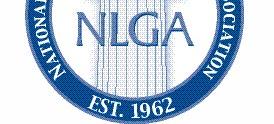
WWW.NLGA.US
Alaska Sen. Albert Kookesh knows rural. He’s served the nation’s largest legislative district—250,000 square miles in interior Alaska—in the state Senate for eight years. Like other rural legislators, he’s faced challenges getting bills passed that will help his constituents, many of them Alaska Natives in remote locations. It’s especially difficult, since 52 percent of the people in his state live in three communities— Anchorage, Fairbanks and Wasilla. He offers these tips to other rural legislators.

HIRE GOOD STAFF AND MAKE CONNECTIONS
HIRE GOOD STAFF.
Kookesh has hired staff who grew up in the rural communities he represents. “You can’t just hire somebody who graduated from Harvard and have them know the area,” he said. It’s particularly important in Alaska, where temperatures can be frigid, so staff have a good understanding of the importance of the needs of constituents. “You have to have somebody who grew up there and knows what it’s like to live in sub-zero temperatures.”
MAKE A CONNECTION.
As a Tlingit Indian, Kookesh is familiar with the needs of his constituents—he serves 126 rural communities where 16 native languages are spoken. He believes it’s important to identify leaders in those small communities; that comes through visiting the communities and having staff from those communities. It also helps to connect with groups that understand constituents’ needs. As an Alaska Native, Kookesh is a member of the Alaska Federation of Natives, which has 125,000 members. “We have an advantage because (the federation) always has the plight of the Alaska Native and rural Alaska in mind.”
USE TECHNOLOGY.
“Probably one of the greatest challenges was alleviated with the introduction of cell phones and wireless Internet into the communities,” he said. Before that, the communities primarily relied on dial-up access to the Web. It takes an effort for Kookesh to reach the communities he serves— many of the areas are inaccessible by automobiles. But he uses the many different technologies available to stay in touch with the small rural communities he serves, many of them with no more than 50 residents.
WORK ACROSS THE AISLE.
Kookesh, a Democrat, has joined the majority caucus—primarily Senate Republicans—to be able to have a voice in decisions. He advises Democrats in the Alaska House to do the same. “The minority doesn’t help you get things done,” he said. Working with the majority caucus, he said, helps Democrats achieve goals in a primarily Republican state. “It means survival to your communities.” While actually joining the opposing party’s caucus may not work in every state, policymakers can work across the aisle. “I try to be the best politician I can and try to work with everybody,” said Kookesh.
EDUCATE PEOPLE.
Many legislators in Alaska—and other states—may understand the needs in urban areas, but may not be as familiar with the needs in rural areas. Kookesh faces that challenge in many ways. For instance, many people don’t understand that much of the money in Alaska’s budget comes from the natural resources in the rural parts of the state, but they don’t get an equivalent amount of investment in return, he said. By working with the majority, he’s able to talk more about the issues in the rural areas to urban legislators.
National and Regional Meetings Registration and application deadlines may apply. Visit www.csg.org/events for complete details.
For more information, visit: www.csg.org/events.
CSG Midwest—Bowhay Institute for Legislative Leadership Development
Aug. 10–14 | Madison, Wis.
ICAOS—2012 Annual Business Meeting
Aug. 27–29 | Madison, Wis.
APPA—37th Annual Training Institute
Aug. 12–15 | Indianapolis, Ind.
CSG East— Eastern Leadership Academy
Aug. 26–30 | Philadelphia, Pa.
NASPE 2012 Annual Meeting
July 22–25 | Jersey City, N.J.
NASTD—35th Annual Conference and Technology Showcase
Aug. 26–30 | Baltimore, Md.
CSG AFFILIATES
APPA (American Probation and Parole Association) | www.www.appa-net.org/eweb NASTD (National Association of State Technology Directors) | www.nastd.org ICAOS (Interstate Commission for Adult Offender Supervision) | www.interstatecompact.org
Toll Fellows Program Focuses on Leadership
The 2012 class of CSG’s Henry Toll Fellowship Program will be held Sept. 7–12 in Lexington, Ky. Members of the class will participate in a variety of team-building, leadership development and media training exercises. The leadership boot camp gives state officials the opportunity to spend a week with colleagues from all three branches of state government from across the country. Applications for the 2013 class will be available in November.
Webinar Will Cover Health Care Ruling
Join Paul Clement, who argued the Affordable Care Act case on behalf of the states before the Supreme Court, and Patricia Millett, who argued three cases before the Court impacting state or local government, in a discussion about the practical implications of the most important cases affecting state and local government from the Supreme Court’s 2011 term. The State and Local Legal Center is organizing this webinar set for 1 p.m. EDT, July 19, for all Big Seven members, and Lisa Soronen, executive director of the SLLC, also will participate in the conversation.
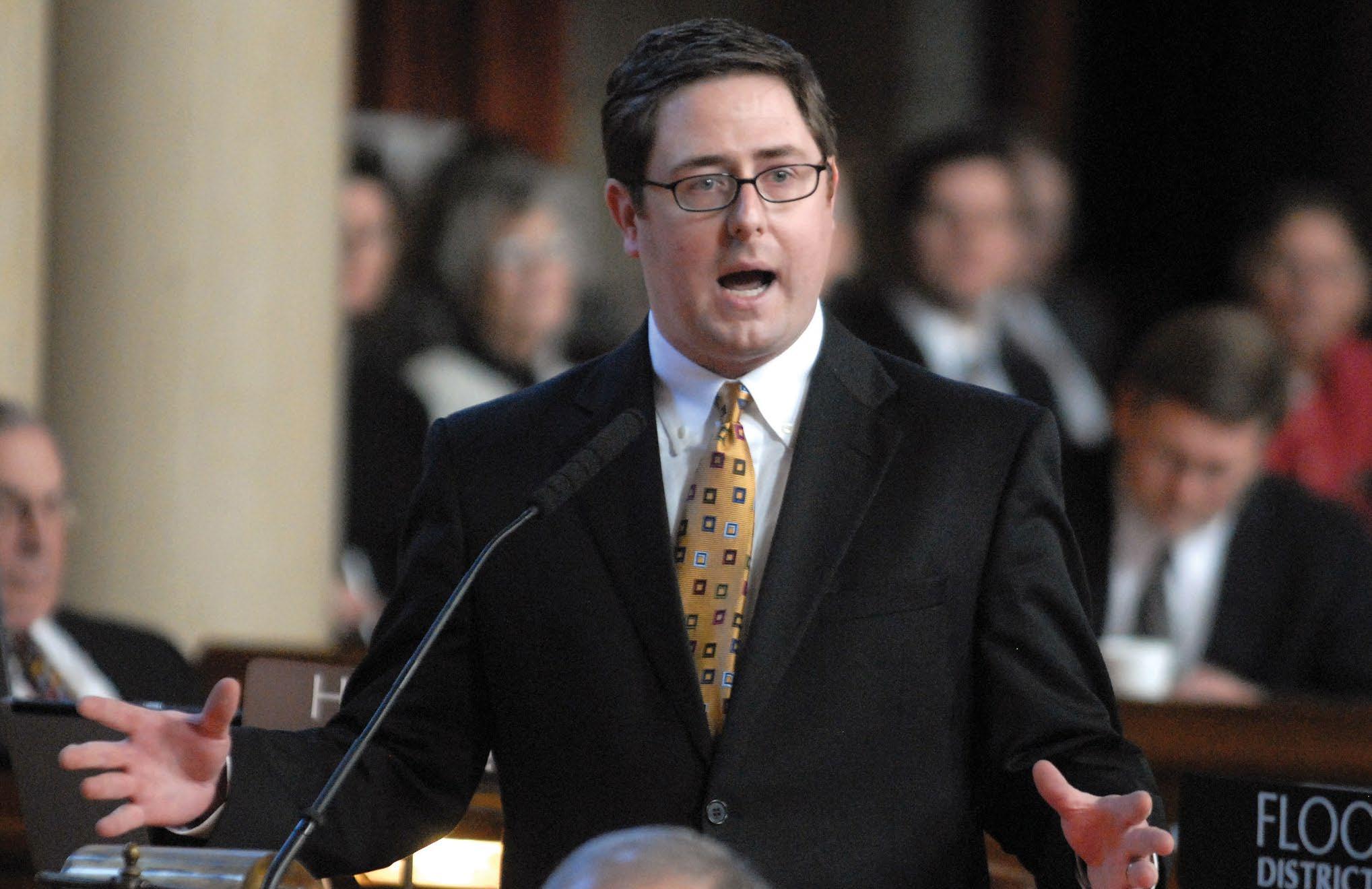
© AP Photo/Dave Weaver
MIKE FLOOD Nebraska Speaker
Leadership came quickly for Mike Flood, the speaker of Nebraska’s unicameral legislature. “I went from being the Enrollment and Review chair, a housekeeping position assigned to the youngest member of the freshman class, to speaker in my third year in the legislature,” he said. Now, after two terms, Flood will be leaving the legislature because of term limits. But he’ll be there to help whomever takes over after he leaves at the end of this year. “An early piece of advice I received was that a leader works to ensure the success of those around him,” Flood said. “In my role as speaker, I wanted the committee chairs and senators to accomplish what they wanted to accomplish. They put in the long hours to get their bills ready, in sitting through committee hearings. It is my job to facilitate what the majority of the body wants.”
THE COUNCIL OF STATE GOVERNMENTS... SO MUCH MORE THAN MEETINGS.




Get the latest information on state government trends without leaving your o ce. The CSG Knowledge Center is your one-stop shop for easily accessible research briefs, thoughtful blogs, interactive charts, timely newsletters and more, all focused on issues that are important to you. The best part is that it is absolutely free to use, easily accessible from your desktop and requires no packing!
Follow CSG
on Twitter! Download the latest Capitol
Research Briefs

Keep in touch with what’s happening on Capitol Hill.



Read articles from Capitol Ideas e-News!
Check out what your peers are reading!
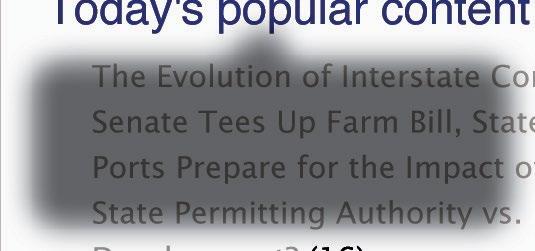

View past webinars!

The Council of State Governments 2760 Research Park Drive P.O. Box 11910 Lexington, KY 40578-1910
WWW.CSG.ORG









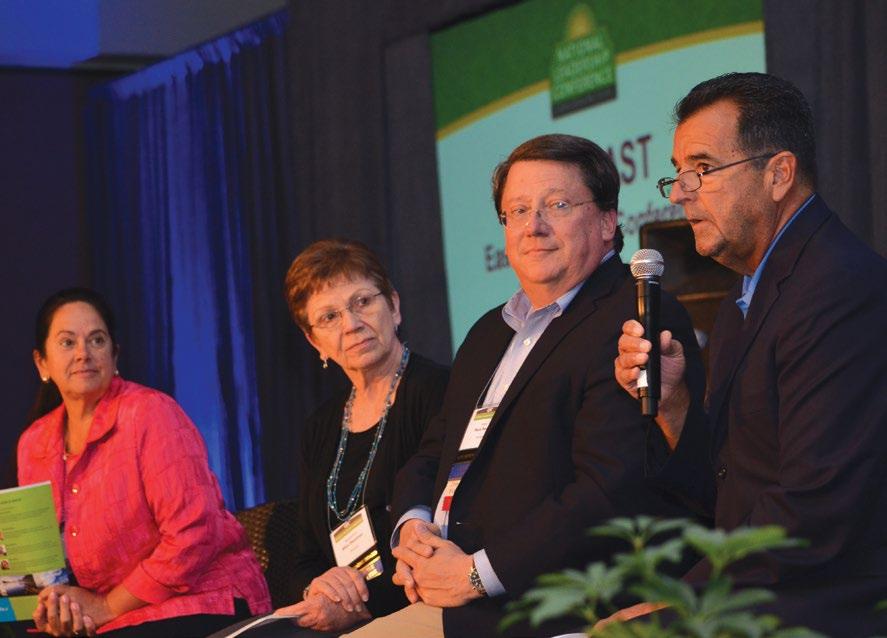





REGISTRATION NOW OPEN













